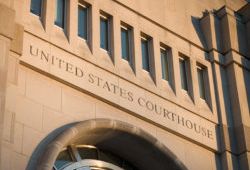 The U.S. Supreme Court agreed today to review “whether enablement is governed by the statutory requirement that the specification teach those skilled in the art to ‘make and use’ the claimed invention, 35 U.S.C. § 112, or whether it must instead enable those skilled in the art ‘to reach the full scope of claimed embodiments’ without undue experimentation.”
The U.S. Supreme Court agreed today to review “whether enablement is governed by the statutory requirement that the specification teach those skilled in the art to ‘make and use’ the claimed invention, 35 U.S.C. § 112, or whether it must instead enable those skilled in the art ‘to reach the full scope of claimed embodiments’ without undue experimentation.”
In February 2021, the Federal Circuit held that claims of two Amgen patents related to its cholesterol medication Repatha are not enabled on grounds that practicing their full scope would require “undue experimentation.” The patent claims at issue are directed to antibodies that bind to one or more of fifteen amino acids of the PCSK9 protein and block PCSK9 from binding to LDL receptors. In November 2021, Amgen filed a petition for writ of certiorari to the Supreme Court.
The Supreme Court asked for the Solicitor General’s views in April 2022, and in August 2022 the Solicitor General filed a brief recommending that the Court deny the petition.
In its order today, the Supreme Court declined to grant a separate question presented by Amgen as to whether enablement is a question of law or a pure question of fact for the jury.
The case will be argued in early 2023 and will likely be decided by June 2023.
Stay tuned to Big Molecule Watch for further developments on this case.

